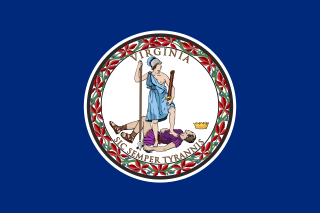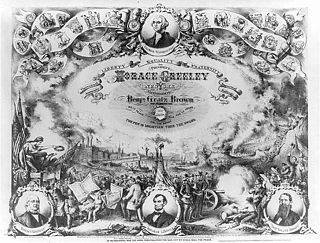Conservatism is a political and social philosophy promoting traditional social institutions in the context of culture and civilization. The central tenets of conservatism include tradition, human imperfection, hierarchy, authority, and property rights. Conservatives seek to preserve a range of institutions such as monarchy, religion, parliamentary government, and property rights, with the aim of emphasizing social stability and continuity. The more extreme elements—reactionaries—oppose modernism and seek a return to "the way things were".

The Conservative Party, officially the Conservative and Unionist Party, is a centre-right political party in the United Kingdom. Presently led by Theresa May, it has been the governing party since 2010. It presently has 314 Members of Parliament in the House of Commons, 249 members of the House of Lords, and 18 members of the European Parliament. It also has 31 Members of the Scottish Parliament, 12 members of the Welsh Assembly, eight members of the London Assembly and 9,008 local councillors. One of the major parties of UK politics, it has formed the government on 45 occasions, more than any other party.
Conservative Party may refer to:

Howard Jay Phillips was a three-time United States presidential candidate who served as the chairman of The Conservative Caucus, a conservative public policy advocacy group which he founded in 1974. Phillips was a founding member of the U.S. Taxpayers Party, which later became known as the Constitution Party.

The Constitutional Union Party was a political party in the United States created in 1860 which ran against the Republicans and Democrats as a fourth party in 1860. It was made up of conservative former Whigs who wanted to avoid secession over the slavery issue. These former Whigs teamed up with former Know Nothings and a few Southern Democrats who were against secession to form the Constitutional Union Party. The party's name comes from its simple platform, which consists of the resolution "to recognize no political principle other than the Constitution of the country, the Union of the states, and the Enforcement of the Laws". The party hoped that by not taking a firm stand either for or against slavery or its expansion, the issue could be pushed aside.
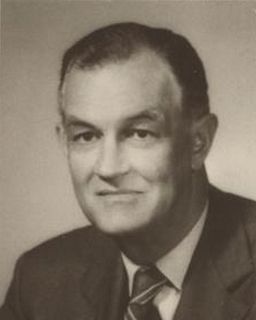
Mills Edwin Godwin Jr. was an American politician who was the 60th and 62nd Governor of Virginia for two non-consecutive terms, from 1966 to 1970 and from 1974 to 1978.

Abner Linwood "Lin" Holton Jr. is a Virginia political figure and attorney. He served as the 61st Governor of Virginia, from 1970 to 1974. He was the first Republican governor of Virginia in the 20th Century. He was also the first Republican who won a popular election as governor. Holton is the father of Anne Holton, who later married future Governor and current Senator Tim Kaine.

The Readjuster Party was a political biracial coalition formed in Virginia in the late 1870s during the turbulent period following the Reconstruction era. Readjusters aspired "to break the power of wealth and established privilege" among the planter elite of white men in the state and to promote public education. Their program attracted biracial support.

The Lieutenant Governor is a constitutional officer of the Commonwealth of Virginia. The Lieutenant Governor is elected every four years along with the Governor and Attorney General. The office is currently held by Democrat Justin Fairfax. The governor and lieutenant governor are elected separately and thus may be of different political parties. The lieutenant governor's office is located in the Oliver Hill Building on Capitol Square in Richmond, Virginia. The lieutenant governor serves as the President of the Senate of Virginia and is first in the line of succession to the governor; in the event the governor dies, resigns, or otherwise leaves office, the lieutenant governor becomes governor. Unlike the governor, the Lieutenant Governor of Virginia can serve consecutive terms.

The Mountain Party is a state-level political party in West Virginia. It is the West Virginia affiliate of the Green Party of the United States. The party was headed by Jesse Johnson, State Chairman.
The Conservative Party in the United States refers to various state parties that had no connection with one another. There has never been a national party with a similar name.
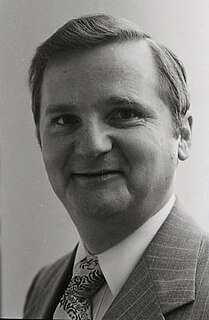
Morton C. Blackwell is an American conservative activist. He is the founder and president of the Leadership Institute, a 501(c)3 non-profit educational foundation that teaches political technology to conservative activists. He currently serves as Virginia's national committeeman on the Republican National Committee.

Elections to the United States House of Representatives for the 27th Congress were held at various dates in different states from July 1840 to November 1841.

The Attorney General of Virginia is an elected constitutional position that holds an executive office in the government of Virginia. Attorneys General are elected for a four-year term in the year following a presidential election. There are no term limits restricting the number of terms someone can serve as Attorney General.
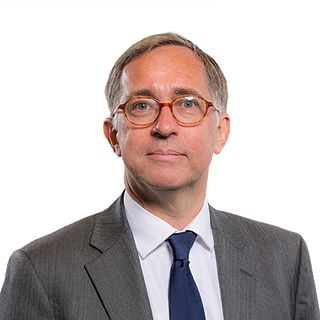
David Robert Michael Melding AM, CBE is a Welsh Conservative Party member of the National Assembly for Wales for the Welsh Conservative Party in the South Wales Central Region. He was the Deputy Presiding Officer of the National Assembly between 2011 and 2016.

The 1904 Democratic National Convention was an American presidential nominating convention that ran from July 6 through 10 in the Coliseum of the St. Louis Exposition and Music Hall in St. Louis, Missouri. Breaking with eight years of control by the Democratic Party's reform wing, the convention nominated conservative Judge Alton B. Parker of New York for President and Henry G. Davis of West Virginia for Vice President.
The Conservative Party of Virginia was a United States political party in the state of Virginia during the second half of 19th century. It centered on opposition to Reconstruction. During its history, the party was successful in electing six congressmen to the U.S. House of Representatives, all during the 41st Congress. The party was related to similar conservative movements in other states, combining Liberal Republicans and repentant Democrats looking to improve their image as "friends of the black people" on a national level. The movement was also closely tied to the "New Departure" movement of Virginia statesman William Mahone. The Conservative Party's efforts ultimately divided the Republican Party in the state and caused its political power in Virginia to diminish.
Elections in Virginia are authorized under Article I Virginia State Constitution, sections 5-6, and Article V which establishes elections for the state level officers, cabinet, and legislature. Article VII section 4 establishes the election of county-level officers.

The 1944 Republican presidential primaries were the selection process by which voters of the Republican Party chose its nominee for President of the United States in the 1944 U.S. presidential election. The nominee was selected through a series of primary elections and caucuses culminating in the 1944 Republican National Convention held from June 26 to June 28, 1944, in Chicago, Illinois.
Eva Mae Fleming Scott is a pharmacist, businesswoman and politician from Virginia. Despite redistricting problems, she served four consecutive two-year terms as delegate in the Virginia General Assembly. In 1979 she became the first woman elected to the Virginia State Senate, where she served a single term.

